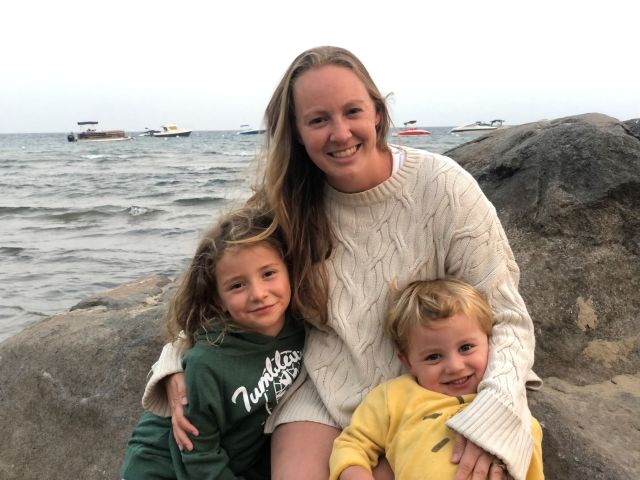The 2021-2022 school year is shaping up to be one of the most challenging yet. I was asked at the beginning of the school year to put together some thoughts on how parents might be able to help their kids succeed this school year. Going into Winter Break, these seem like great reminders to help us during the second half of the school year!
This question is really great for two reasons—it gives parents some tangible impact in what sometimes feels like a situation that is out of their control and it helps to refocus the work on the adults and not the kids. Children are really resilient—it’s the adults that we need to help out.
Ok! Let’s dive into it. My first recommendation for parents on how to help their children thrive and excel in school is to provide as much outdoor time as possible. And preferably unstructured outdoor time. Go to a park with no plan. Sit on your balcony. Walk to the post office. Wander in a garden or the woods. Our kids need time to recharge and nothing does that better than some mindful time in nature.
When your child is feeling more refreshed and present, then they can begin to make space for learning and being at school. Parents want to be involved in their kid’s lives at school, but don’t always know how to do that. Start out by asking open-ended questions about your child’s day at school, and not just asking, “What did you do today?” or “Was your day good?” Ask things like:
- “What is something new or exciting you did today?”
- “What was something funny that happened today?”
- “What did you do today during recess / homeroom / a-period / lunch?” Ask about a time at school that is NOT a class.
- “What’s a problem or a challenge you solved today?”
And then, after asking about whatever thing you are interested in, follow it up with, “Tell me more!” Invest some time into what your child does day to day so that when you ask these questions, it’s not just about getting information, it’s about sharing an experience.
The Importance of Autonomy
Along with connection and community, happiness is made up of autonomy. So much of what our children do at school is decided for them. Until the upper years of high school, they have very little choice in what they get to learn or experience at school. Parents can have a huge impact in making their child’s time at school successful by giving them opportunities for choice and ownership. Daily opportunities for autonomy are huge—it provides a touchpoint throughout the day of something they can be proud of and invested in and it helps with understanding commitment and ownership. Something as small as choosing a snack can give a student the confidence and calmness that they need to tackle bigger problems like algebra or asking a teacher for help.
The Importance of Mastery
The last component of happiness is mastery. This might seem like that is the point of school, but when kids don’t get to choose something they can be experts in, it’s not the same. Even at a young age, parents can help kids thrive and excel in school when they invest in something their child love to do outside of the classroom. When a child has an interest, hobby, sport, or enrichment they are working on outside of school, it helps them to better express who they are, it becomes part of their persona, a part they can always go back to even when school gets hard. From ukulele lessons, to playing rugby, to even just collecting rocks, investing in something that helps your child feel like an expert comes in all shapes and sizes.
The Importance of Gratitude
Lastly, of all the recommendations I make to parents and families, this one comes up time and time again. We believe that a grateful child is a healthier child. Studies have shown that acts of gratitude increase feelings of optimism and drastically decrease anxiety. If you can see the good around you, you can expect there to be good tomorrow and are less worried about what bad thing might happen to you.
Parents can help their children thrive at school by practicing what my family calls, “Favorite Part of the Day.” If you have younger students, doing just one “favorite” part or good thing, is enough, for older ones, the practice of sharing, “Three Good Things” at the end of the day works just as well.
Whether your family is lucky enough to have dinner all together, or maybe it’s driving back from everyone’s sports’ practices, take turns for everyone to share one good thing or their favorite part of that day. And sharing is mandatory—everyone can find one good thing that happened that day even if it was a really, really hard day. There are some days when my good thing to share is the meal I’m having right then and there.
—Liz Kimmelman, Tumbleweeds
Do you have a story you’d like to share with our readers? We’d love to hear it! Sign up for our Voices Contributor Network where you can submit your funny, heartfelt and/or unbelievable parenting stories and see them on Tinybeans.com!











